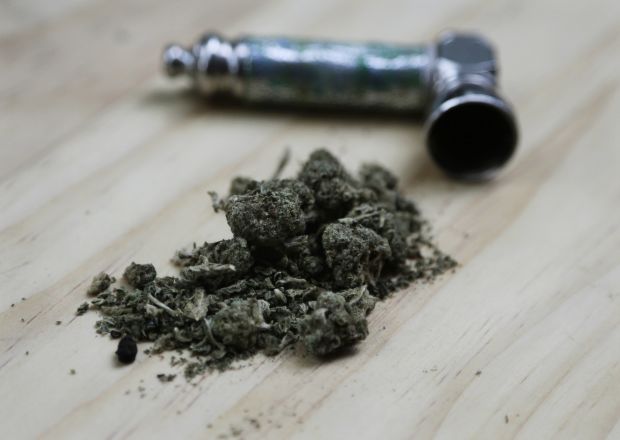Peter Bach states: “Marijuana belongs in the same category as alcohol and tobacco—harmful products that adults can choose to enjoy” (“If Weed Is Medicine, So Is Budweiser,” op-ed, Jan. 18). This is absolutely correct: Like alcohol, tobacco and hundreds of prescription medications, marijuana has mood-altering effects that many people find pleasurable. Moreover, like all active drugs, marijuana can be harmful if used incorrectly. But the very fact that marijuana clearly has such well-recognized effects that many people use to find relief from some of the same conditions for which they take prescription drugs suggests that it may also have legitimate medical uses. This is something Dr. Bach appears to reject out of hand.
Clearly, we need more clinical evidence relative to marijuana’s possible medical uses, so why is there not more? As a result of fearmongering prohibitionists and propaganda like the film “Reefer Madness,” marijuana was made a Schedule I drug, placed in the same legal category as heroin. As a result, conducting clinical research has historically been extraordinarily difficult, as it has for other agents that are now thought to have clinical uses including psilocybin and MDMA (street name, “ecstasy”).
Another reason for the dearth of scientific evidence is simply funding. Since the presumed active ingredients in marijuana are naturally occurring, they are generally not patentable. As a result, pharmaceutical companies aren’t inclined to invest hundreds of millions of dollars (at least) into large-scale clinical trials, even if they could get such trials approved through the Byzantine labyrinth that one must navigate.
What is perhaps most disturbing about Dr. Bach’s polemic is the apparent ideological denialism in which he seems unwilling to even entertain the notion that a drug can have both abuse potential and legitimate medical uses.
Prof. Michael T. Rupp, Ph.D., FAPhA
Midwestern University
Glendale, Ariz.
Significant research on marijuana has been carried out in other countries, most notably Israel and Canada, where the efficacy and safety profile of medical cannabis is being determined. Although it is clearly not the miracle drug many true believers claim it to be, there is considerable published evidence of its benefit in treating the spasticity of multiple sclerosis, chemotherapy-induced nausea and vomiting, and many forms of chronic pain resistant to other conventional treatments.
Dr. Bach isn’t justified in insisting that cannabis isn’t a medicine. At most, he ought to have said that it may or may not be a medicine, pending further data.
Richard J. Rosenbluth, M.D.
Holy Name Medical Center
Teaneck, N.J.
Categorical stigmatizing of substances without reference to health-related cost-benefit analyses is exactly what promotes divisive ideologically driven conversations about health-risk behavior rather than a more nuanced evaluation. Drinking in moderation has known benefits. Smoking tobacco has no upside, but people can reduce the risks to a minimum if they are less susceptible to nicotine addiction and smoke less. The risks of occasional marijuana use on physical or mental health are minimal. Lots of behavior carries risks, including eating food, being a couch potato and riding a bicycle. Let us calculate the risks and benefits and teach young people to make informed and rational choices.
Tom O’Hare
Charlestown, R.I.
